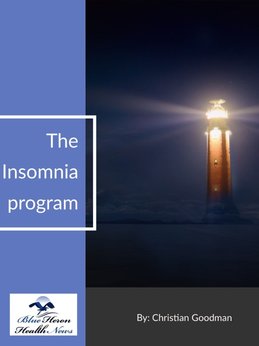
The Insomnia Program™ By Christian Goodman This program has been created by Christian Goodman, a natural health expert and sufferer of insomnia. He has used an audio program to let your fall sleep with the help of a bit of a hypnotic effect on your body.
How do certain medications affect sleep?
Certain medications can have significant effects on sleep, either by causing sleep disturbances or by promoting sleep. Here’s a detailed overview of how different types of medications can impact sleep:
1. Stimulants
- Medications: Drugs such as amphetamines, methylphenidate (Ritalin), and certain medications used to treat attention-deficit/hyperactivity disorder (ADHD) like Adderall can cause insomnia or difficulty falling asleep due to their stimulating effects on the central nervous system.
- Mechanism: These medications increase the release of neurotransmitters like dopamine and norepinephrine, which promote wakefulness and alertness. This can make it challenging to wind down at night and fall asleep (Labiotech.eu) (FIU News).
2. Antidepressants
- Selective Serotonin Reuptake Inhibitors (SSRIs): Common SSRIs like fluoxetine (Prozac), sertraline (Zoloft), and paroxetine (Paxil) can cause sleep disturbances, including insomnia and vivid dreams. SSRIs may also decrease REM sleep, which can affect sleep quality (Med Xpress).
- Tricyclic Antidepressants (TCAs): While TCAs such as amitriptyline and nortriptyline can be sedating and sometimes used to treat insomnia, they can also cause restless legs syndrome or periodic limb movements during sleep, disrupting sleep continuity (FIU News).
- Atypical Antidepressants: Medications like bupropion (Wellbutrin) can have stimulating effects, leading to difficulty falling asleep or staying asleep. However, other atypical antidepressants like trazodone are often used to treat insomnia due to their sedative properties (Labiotech.eu).
3. Beta-Blockers
- Medications: Beta-blockers such as propranolol and metoprolol, commonly used to treat high blood pressure and heart conditions, can cause insomnia and nightmares.
- Mechanism: These drugs reduce the production of melatonin, a hormone that regulates sleep-wake cycles, which can lead to difficulties in falling asleep and maintaining sleep (Med Xpress).
4. Corticosteroids
- Medications: Prednisone and other corticosteroids, used to treat inflammatory conditions, can cause significant sleep disturbances, including insomnia and increased wakefulness during the night.
- Mechanism: Corticosteroids can disrupt the body’s natural hormone balance, leading to increased levels of cortisol, the stress hormone, which can interfere with the ability to fall and stay asleep (FIU News).
5. Antihistamines
- First-Generation Antihistamines: Drugs like diphenhydramine (Benadryl) and doxylamine are often used as over-the-counter sleep aids due to their sedative effects. However, they can also cause next-day drowsiness, dry mouth, and impaired cognitive function, which can affect sleep quality in the long term (Labiotech.eu).
- Second-Generation Antihistamines: Medications like loratadine (Claritin) and cetirizine (Zyrtec) are less likely to cause drowsiness and have fewer effects on sleep architecture (Med Xpress).
6. Benzodiazepines
- Medications: Benzodiazepines like diazepam (Valium), lorazepam (Ativan), and temazepam (Restoril) are commonly prescribed for anxiety and insomnia. They are effective in inducing sleep but can lead to dependence and tolerance, meaning higher doses are needed over time to achieve the same effect (FIU News).
- Impact on Sleep Architecture: These medications can reduce the amount of deep sleep and REM sleep, potentially affecting the restorative quality of sleep (Labiotech.eu).
7. Over-the-Counter Sleep Aids
- Melatonin Supplements: Melatonin is often used to help with sleep onset, particularly in cases of jet lag or shift work. It is generally considered safe but can cause vivid dreams or drowsiness the next day if taken inappropriately (Med Xpress).
- Herbal Supplements: Some herbal supplements like valerian root and chamomile are used for their calming effects and may promote sleep, though their efficacy varies, and they can interact with other medications (FIU News).
8. Opioids
- Medications: Opioid pain medications like oxycodone, hydrocodone, and morphine can cause sleep disturbances, including sleep apnea and shallow breathing during sleep.
- Impact on Sleep: While opioids can induce drowsiness, they often reduce REM sleep and deep sleep, leading to fragmented and non-restorative sleep (Labiotech.eu).
Conclusion
Various medications can affect sleep in different ways, either by promoting sleep or causing sleep disturbances. Understanding these effects can help individuals manage their sleep more effectively, especially when taking multiple medications. It is always important to consult with a healthcare provider before starting or stopping any medication, particularly if sleep disturbances are a concern.

The Insomnia Program™ By Christian Goodman This program has been created by Christian Goodman, a natural health expert and sufferer of insomnia. He has used an audio program to let your fall sleep with the help of a bit of a hypnotic effect on your body.